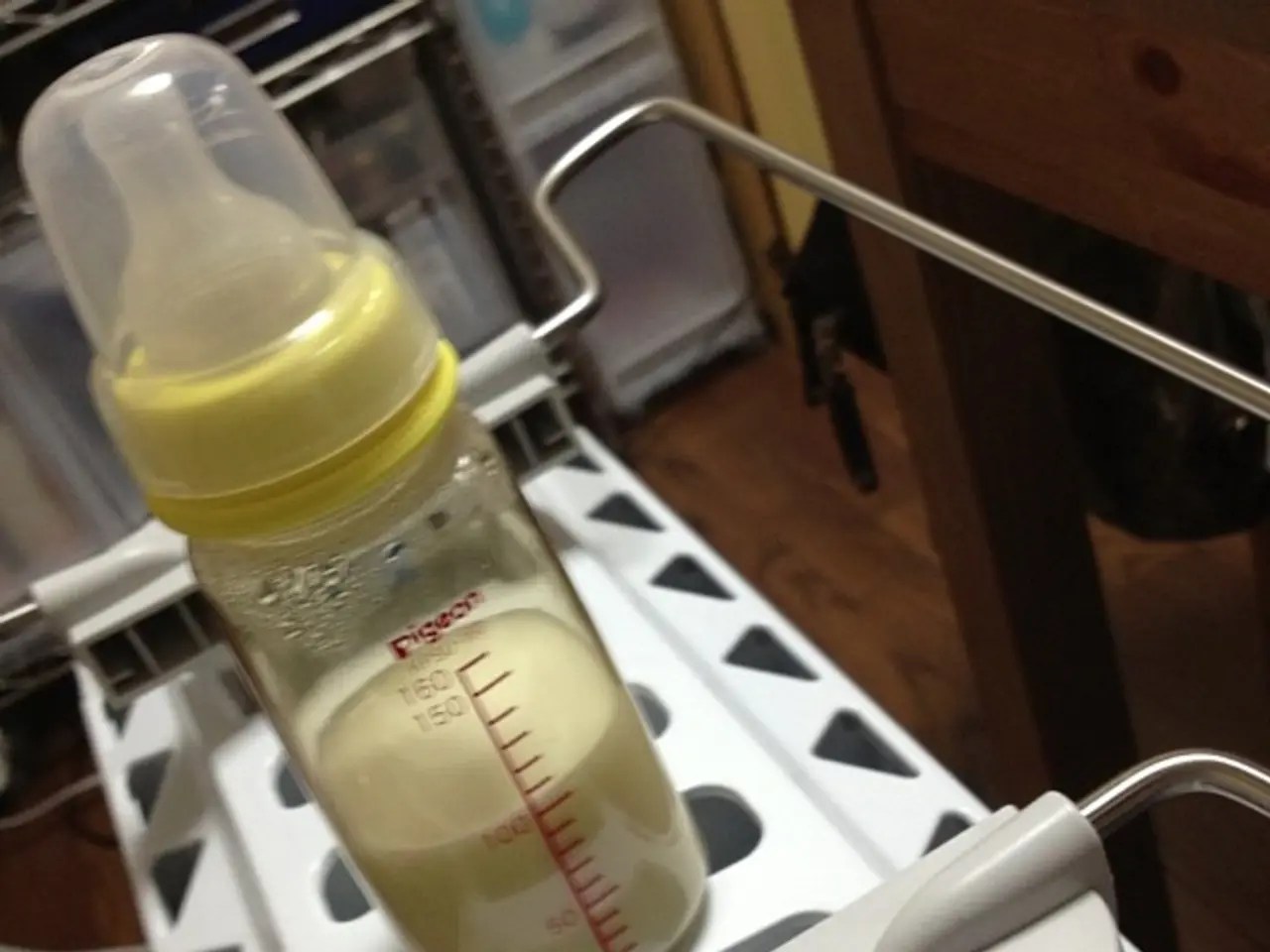Unheeded health advisories lead to 21 cases of illness due to consuming unpasteurized milk in Florida
Raw Milk Consumption in Florida Leads to Health Concerns
A recent outbreak of bacterial infections in Florida has raised concerns about the consumption of raw milk. At least 21 cases of Campylobacter and Shiga toxin-producing E. coli (STEC) infections have been reported, leading to seven hospitalizations and six cases involving children under the age of 10 [1][2].
The Florida Health Department has expressed concern about the producer's handling of raw milk and milking procedures in preventing contamination. The farm in question has sanitation practices of concern, as stated by the Department [1].
Raw milk has not been pasteurized, meaning it has not undergone a heat-treating process that destroys bacteria. This can lead to exposure to harmful pathogens such as Campylobacter, Escherichia coli (E. coli), Listeria, Salmonella, and other types of bacteria [3]. The infections occurred in north and central Florida [1].
In the United States, federal law requires all milk sold in interstate commerce to be pasteurized, effectively banning the sale of raw milk across state lines, though individuals may purchase raw milk and personally transport it for private use [1][4]. State regulation, including in Florida, determines the legality and conditions for raw milk sales; many states allow sales with restrictions, some ban it outright [1].
Despite recent concerns, there haven't been meaningful changes to federal policy regarding raw milk since Robert F. Kennedy Jr. took over the Department of Health and Human Services [5]. Kennedy has criticized the Food and Drug Administration's "aggressive suppression" of raw milk [6]. However, the U.S. Food and Drug Administration strongly supports milk pasteurization [3].
Containers of raw milk sold in Florida must be clearly labeled that the raw milk is for animal consumption only [1]. Raw milk can be sold only for nonhuman consumption in Florida, such as pet food [4]. Public health authorities recommend awareness of these risks before consuming raw milk products [4].
It is advisable to consult Florida’s regulatory body or updated local laws for precise current regulations. Since 1987, there have been at least 143 reported outbreaks of illness associated with the consumption of raw milk and raw milk products contaminated with bacteria [7]. The CDC and public health authorities emphasize the risk of severe diseases especially in vulnerable populations such as children, urging caution when consuming unpasteurized raw milk [4].
References:
[1] Florida Health Department (2025). Raw Milk Advisory. Retrieved from Florida Health Department website
[2] Centers for Disease Control and Prevention (2025). Outbreak of Campylobacter and Shiga toxin-producing E. coli Infections Linked to Raw Milk - Florida, 2024. Retrieved from CDC website
[3] U.S. Food and Drug Administration (2022). Raw Milk. Retrieved from FDA website
[4] Centers for Disease Control and Prevention (2024). Raw Milk. Retrieved from CDC website
[5] National Conference of State Legislatures (2025). Raw Milk. Retrieved from NCSL website
[6] Kennedy, R.F. Jr. (2023). Raw Milk: A Call to Action. Retrieved from Kennedy's website
[7] Centers for Disease Control and Prevention (2022). Outbreaks Associated with Raw Milk and Raw Milk Products - United States, 1987-2019. Retrieved from CDC website
- In the realm of science and health-and-wellness, it's crucial to analyze the potential risks associated with medical-conditions like food-borne illnesses caused by consuming unpasteurized products, such as raw milk.
- Fitness-and-exercise routines are essential for maintaining good health, but it's equally important to recognize the impact of chronic-diseases, like those resulting from bacterial infections, on overall wellness.
- Research in mental-health shows a strong correlation between stress levels and concerns about financial-security, and the recent raw milk outbreak in Florida raises concerns about personal-finance implications due to related hospitalizations.
- Following the outbreak, therapies-and-treatments for bacterial infections are being utilized to address the health concerns of those affected, while cybersecurity measures may help prevent future contaminations in the digital age.
- The current lifestyle of consumers, especially those who prioritize health-conscious choices, may be impacted by the raw milk ban in Florida as they seek alternatives for their food-and-drink preferences.
- A visit to a home-and-garden store may offer some options for pet-owners seeking high-quality food sources, as raw milk can be legally purchased for pet consumption in Florida.
- Businesses in the food-and-beverage industry may need to adapt their offerings in response to changing regulations, while those working in personal-finance may observe the impact of increased health-related expenses on consumers' financial wellbeing.
- Technology plays a role in addressing this issue, not only by providing online resources for staying informed but also in ensuring thorough documentation and traceability of food products.
- The relationship between consumers and food producers is highlighted in the debate about raw milk consumption, as some advocate for a consumer's right to choose while others stress the importance of prioritizing public health.
- Travelers planning a trip to Florida may want to explore local cuisine, but the raw milk outbreak serves as a reminder to stay informed about local health advisories before indulging in new food experiences.
- For sports enthusiasts, injuries or illnesses resulting from bacterial infections can impact their performance and training schedule, emphasizing the importance of prioritizing healthy lifestyle choices. The weather may also impact the safety of raw milk consumption, considering pathogens tend to thrive in warm temperatures.




